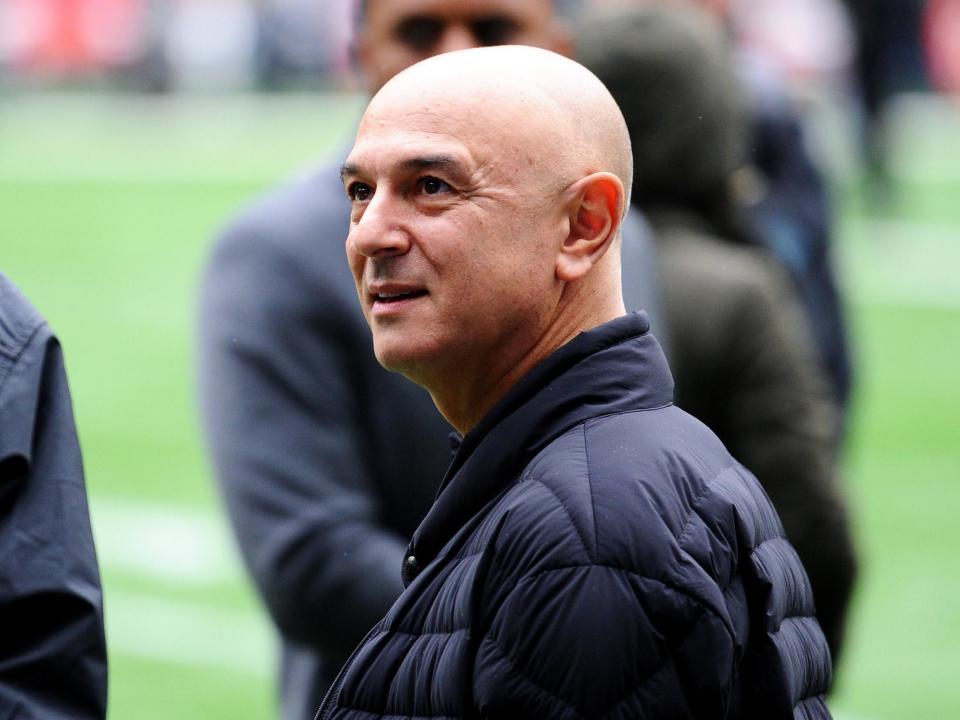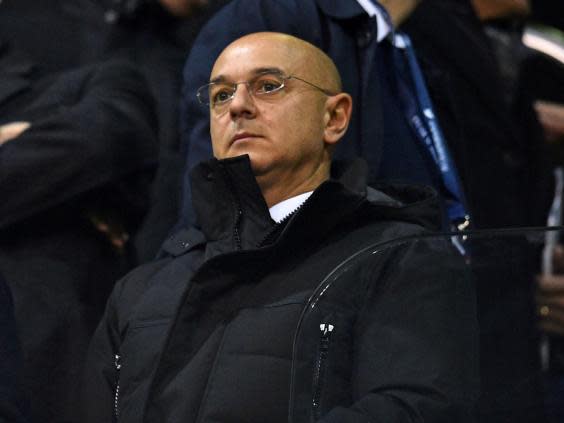Coronavirus crisis shines spotlight on football’s lack of leadership

This week a mirror has been held up to the beautiful, morally bankrupt game.
The eighth richest football club in the world, who have the highest-paid executive in the Premier League and are owned by a man with an estimated net worth of £4.3bn, announced a 20% salary cut for 550 non-football staff who would be furloughed “where appropriate.”
The news from Tottenham arrived when it was also revealed that their chairman Daniel Levy’s salary ballooned to £7m, courtesy of a £3m bonus for delivering a new stadium that was both hugely over budget and late.
Spurs had followed – no surprises here – Mike Ashley’s Newcastle, the subject of a possible £340m Saudi Arabian takeover, in turning to the government’s Coronavirus Job Retention Scheme.
Norwich and Bournemouth joined them, albeit with the latter announcing that manager Eddie Howe, his assistant Jason Tindall, technical director Richard Hughes and chief executive Neill Blake were taking significant pay cuts.
The situation has naturally spotlighted the enormous salary of elite footballers with the Premier League, EFL, PFA and LMA still locked in discussions over a deferral of wages and cuts.
Julian Knight, the Conservative chair of the department for culture, media and sport committee, accused English football of operating in a “moral vacuum”.
Sadiq Khan, the major of London, told BBC 5Live: “Those with the greatest shoulders should carry the greatest burden, and highly-paid football players are people who can carry the greatest burden. They should be the first ones, with the greatest respect, who should sacrifice their salary rather than the person selling the programme or the person who does catering or the person who probably doesn’t get anywhere near the salary that some of the Premier League footballers get.”
The Independent have been told that players and managers across several clubs are willing to sacrifice a portion of their salaries – as was the case at Championship leaders Leeds, who took sizeable deferrals to ensure all non-playing staff and casual workers receive full incomes – but have been advised by the PFA to wait on a collective agreement.
Professor Simon Chadwick, the Global Director of Eurasian Sport and Professor of the Eurasian Sport Industry at Emlyon Business School, believes a lack of good governance and strong leadership in the game has been flagged during the coronavirus pandemic.
He told The Independent: “There’s a broader discussion to be had, but it’s been focused on football cause it’s popular, it’s in the spotlight and there’s always been a dislike of wages at the top of the game.
“Should the editor of The Independent accept a wage cut to pay if staff are furloughed? Should the Dean at my business school take one if staff are furloughed here?
“If we’re insisting players should take pay cuts, what about the managers and the big execs? What about the rest of very high earners in society?
“Football will always be a target and what it needs, instead of finger-pointing, is transparent dialogue on how we do things now, but more importantly, what happens going forward.
“Exercising good governance will have dictated collective responsibility – that it doesn’t fall on one player or club to do something to help during this pandemic. It should extend beyond leagues and also include the community around football: the big broadcasters and sponsors for example.”

Chadwick, an expert in the link between sport, business and politics, has been “advocating for a football parliament for around 15 years, where relevant stakeholders debate in public over the key areas of concern and how it can be tackled in future.”
He is scathing of the operational mechanisms in football and hopes the vulnerability of the game during this global crisis forces it to become wiser.
“Too often the management and leadership within clubs is insufficiently developed. In some cases it is immature,” Chadwick says. “There’s a thinking of what happens on the field is most important and so off the field, there’s a lot of me tooism.
“Instead of clubs individually assessing a situation and thinking ‘this is what we believe we need to do,’ many will think ‘oh they’ve done that, so we need to do that.’
“You get a cascade effect of ‘me too – I’m doing it too.’ It results in generic responses to crisis situations. The current woes can bring about a cultural revolution. Football needs it.
“I’ve heard this being called a ‘reset moment’ for the game. Reset to what? Who is going to do the resetting? The government, the associations, clubs on their own?
“It need advocates, stakeholders from across the game – officials, fans, media, execs – to agree a path forward that becomes policy, which is supported by government. Whether it be ridding gambling sponsorships or making sure the game is really serious about corporate social responsibility. Otherwise, football will be sleepwalking into the future.”
Read more
When can we really expect coronavirus to end?
Everything you need to know on supermarket delivery slots
The dirty truth about washing your hands
Which countries around the world has coronavirus spread to?
Listen to the latest episode of The Independent Coronavirus Podcast

 Yahoo News
Yahoo News 